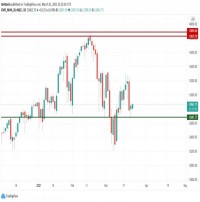|
|

Andrew Lo
Liquidity and a Premium?
By Chidem Kurdas
This is a brief review of a surprising result from a working paper by Andrew
Lo and Amir Khandani. Professor Lo is both a practitioner of managed futures and
a professor of finance at MIT as well as director of MIT's Laboratory for
Financial Engineering. He is the author of numerous academic papers and books,
including Hedge Funds: An Analytic Perspective.
In 1999 he founded AlphaSimplex Group, now a subsidiary of Natixis Global Asset
Management. He is co-portfolio manager of ASG Managed Futures Strategy Fund, a
trend-following mutual fund launched in 2010, and of ASG Global Alternatives, a
mutual fund that trades futures and forwards to obtain a similar return to a
diversified portfolio of hedge funds.
The paper we draw on is titled "Illiquidity Premia in Asset Returns: An
Empirical Analysis of Hedge Funds, Mutual Funds, And US Equity Portfolios". This
highly technical article may not be everybody's cup of tea, but the findings
include an intriguing result regarding returns from managed futures-namely that
they carry a premium associated with illiquidity in other types of investment.
It should be noted that the study as a whole is not about managed futures and
the particular finding reported here happened to show up in an analysis of
liquidity-we are focusing on only a small part of the overall research.
Managed futures is one of the most liquid investments. One way of measuring this
is by comparing redemption notice periods, shown for selected hedge fund sectors
in the table below. The average withdrawal notice for managed futures is orders
of magnitude shorter than that for all other strategies.
-------------------------------------------------------------------------------------------------------------------------------------------
|
|
Hedge Funds'
Redemption Notice Periods (averages, in days) |
|
Event-driven |
50 |
|
Fund of funds |
40 |
|
Convertible arbitrage |
37 |
|
Fixed Income Arbitrage |
34 |
|
Long/short equity hedge |
31 |
|
Emerging Markets |
27 |
|
Global Macro |
20 |
|
Managed futures |
8 |
SOURCE: "Illiquidity Premia in Asset Returns: An Empirical Analysis of Hedge
Funds, Mutual Funds, And US Equity Portfolios" working paper by Lo and Khandani.
----------------------------------------------------------------------------------------------------------------------------------------------
Professor Lo has investigated this topic for some time. In previous studies he
and others showed that autocorrelation (or serial correlation) is an indicator
of the degree of liquidity-see references. Serial correlation means returns are
predictable from earlier returns, a pattern not expected in an efficient market
but explained by the presence of illiquidity.
Illiquid investments like private equity are typically autocorrelated. By
contrast, managed futures returns have no significant autocorrelation-in other
words, they're not predictable, an indication of high liquidity.
Illiquidity, like other risks, requires compensation. As expected, illiquid
strategies have large risk premiums. For instance, Lo & Khandani estimate that
convertible arbitrage has a risk premium of 9.9%.
Managed futures, being highly liquid, should not have any illiquidity premium.
Surprisingly, Lo & Khandani find that managed futures returns do contain a
premium of 4.9%. They suggest there is significant variability in liquidity
among managed futures funds. But the study does not focus on explaining this
finding.
Whether managed futures still earns a risk premium is unclear. Lo & Khandani's
hedge fund data is for the 30-year period from 1986 to 2006. It is possible that
this result does not extend beyond that period. But it is intriguing that there
is an illiquidity premium built into the returns from a very liquid investment.
It sounds like having your cake and eating it, too.
REFERENCES
Lo, A., 2001. "Risk Management For Hedge Funds: Introduction and Overview",
Financial Analysts Journal, 57, 16-33.
Getmansky, M., Lo, A., and I. Makarov. 2004. "An Econometric Model of Serial
Correlation and Illiquidity in Hedge Fund Returns", Journal of Financial
Economics, 74, 529-609.
|





 RSS
RSS









